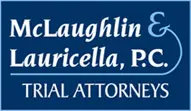A nationwide outbreak of fungal meningitis has been traced to possibly contaminated steroid medication distributed by the New England Compounding Center in Framingham, Massachusetts. The steroid, methylprednisolone acetate, has been recalled after being linked to 170 cases of fungal meningitis, fourteen of which were fatal.
What makes these cases unusual is the source of the contaminated steroid. Usually, medications such as steroids are mass-produced by drug manufacturers. The steroids at issue here were distributed by a “compounding center.”
Compound pharmacists take manufactured medications, and customize them for individualized purposes. For instance, they may take a medication available only in pill form and turn it into a liquid so that a child can take it; they may take a previously manufactured medication and create a dose smaller than the smallest manufactured dose. While compounding was quite prevalent prior to the advent of mass produced pharmaceuticals in the 1950s and 1960s, it is rather unusual today.
The New England Compounding Center appears to a more like an outright manufacturer and less like a simple compound pharmacist. Unfortunately, these compounding centers are not as stringently regulated as more traditional manufacturers, and patient safety can be jeopardized by the lack of adequate regulatory oversight.
The law in most states, such as New Jersey and Pennsylvania provides a remedy for individuals harmed by defective products, including pharmaceuticals. A compound pharmacist, like any seller of any product, can be strictly liable in tort, even in the absence of negligence, when it sells a defective product. Strict products liability is based upon the notion that the distributor or seller of a dangerous product is better able to shoulder its economic burdens. Thus, if you have been injured by any dangerous product, including tainted pharmaceuticals, you may be entitled to damages.



